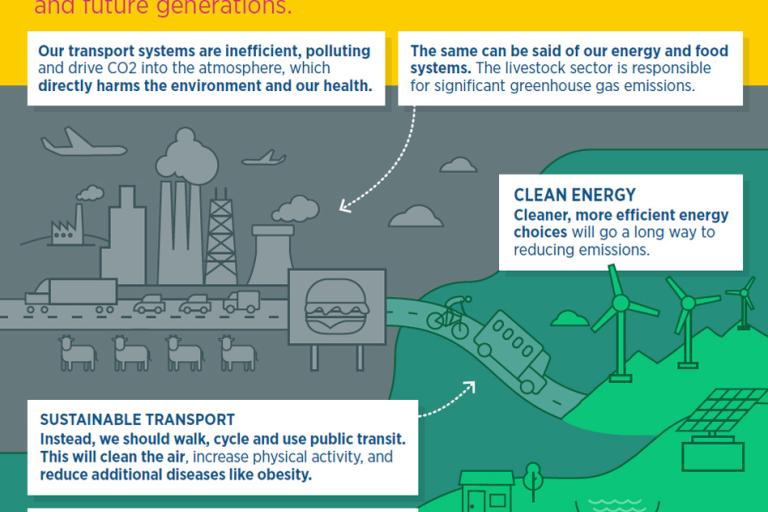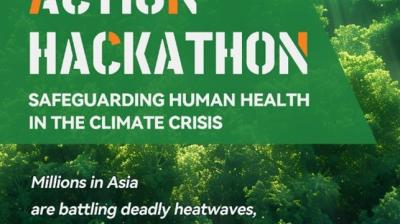Congress approves urban and health plans
The World Meteorological Congress has endorsed an ambitious plan to improve the tailored information and services on weather, climate, water, and related environmental risks to human health and thus improve health outcomes.
In view of the impacts of climate and weather extreme events on health, the World Health Organization and World Meteorological Organization have intensified collaboration through a joint office on climate and health, and other joint activities. The two organizations agreed in May 2018 to step up joint action to tackle environmental health risks that cause an estimated 12.6 million premature deaths every year. Toward this goal, WMO signed up to the global commitment to reduce deaths due to air pollution by two thirds by 2030; co-founded the Health, Environment, and Climate Change Coalition with WHO, UNEP, and UNFCCC; and developed a new joint plan.
The new five-year WHO-WMO Master Plan on Health, Environment, and Climate Science to Services was endorsed by WMO Congress to set in motion further collaborative and joint initiatives to achieve the sustainable provision of integrated urban and health services. By working together, WHO and WMO aim to strengthen their interagency cooperation to harmonize and leverage resources and opportunities to empower and support Member States and partners to better manage risks to human health related to climate change, extreme weather and climate, water, air quality and solar radiation.
The need for focus of such services in urban areas is driven by the global population shift towards cities and increasing exposure of dense populations to a wide range of hazards ranging from extreme weather events, such as heat waves, to air pollution. Urban populations experience elevated health risks and the health sector is one of the beneficiaries of integrated urban services. WMO will also be supporting the implementation of Integrated Urban Services in pilot cities, such as Hong Kong, China where active collaboration with the health community is underway to monitor the urban heat island effect and provide public advisories.
WMO will be working with its members to identify relevant capacities, opportunities and needs to develop research and operational services for health, such as heat wave warning and advisory services in cities.
During the recent WMO Multi-Hazard Early Warning System Conference, WHO and others led discussions on how to highlight Health and Biological dimensions of multi-hazard early warning systems, to strengthen national emergency management if better aligned.
The plan in particular addresses improved access and use of weather, water and climate and related environmental information for risk assessment and reduction, and adaptation planning, as well as enhancing the monitoring, forecasting, warning and management of environmental health risks, such as ultraviolet (UV) radiation, poor air quality, and water.
It seeks opportunities to promote health co-benefits of climate change mitigation and adaptation and to address the needs of populations highly vulnerable to environmental and climatic changes, such as those in urban areas, Low and Middle Income Countries, and Small Island Developing States (SIDS).
The Master Plan presents the following joint goals for the four thematic areas:
(a) Climate and Health: Enhance health system resilience to climate variability and climate change through improved evidence, capacity, provision and application of climate information products and services to health policy and programming.
(b) Weather and Climate Extremes and Health Emergencies: Enhance Health Emergency and Disaster Risk Management to better understand, anticipate, and manage health risks of extreme weather and climate events, and benefit from Multi-hazard Early Warning Systems.
(c) Atmosphere and Environment: Strengthen and harmonize air quality and radiation-related monitoring, modelling, and use of atmospheric and environmental science in public health, including in environmental emergencies.
(d) Water and Health: Enhance water sanitation and hygiene (WASH) sector climate risk management capacity to maintain and improve access to and quality of water and sanitation through improved availability and use of climate and hydrological information products and services.
WMO video on air pollution is here
Information about WMO activities on the environment are here
Information about WMO activities on public health are here
Global Heat Health Information Network - Call to Action is available here











